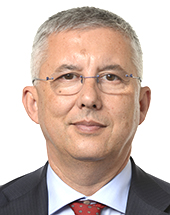
Choisissez la langue de votre document :
- bg - български
- es - español
- cs - čeština
- da - dansk
- de - Deutsch
- et - eesti keel
- el - ελληνικά
- en - English
- fr - français
- ga - Gaeilge
- hr - hrvatski
- it - italiano
- lv - latviešu valoda
- lt - lietuvių kalba
- hu - magyar
- mt - Malti
- nl - Nederlands
- pl - polski
- pt - português
- ro - română
- sk - slovenčina
- sl - slovenščina
- fi - suomi
- sv - svenska
|
| Procedure : 2018/0070(COD) |
| Dokumentforløb : A8-0336/2018 | ||||||
Indgivne tekster : A8-0336/2018 | Forhandlinger : PV 14/11/2018 - 23CRE 14/11/2018 - 23 | Afstemninger : PV 15/11/2018 - 5.6CRE 15/11/2018 - 5.6 PV 18/04/2019 - 10.16 | Vedtagne tekster : P8_TA(2018)0463P8_TA(2019)0436 | |||
| Fuldstændigt Forhandlingsreferat | |
| Onsdag den 14. november 2018 - Strasbourg | Revideret udgave |
|
| Seneste opdatering: 8. april 2019 | Juridisk meddelelse - Databeskyttelsespolitik |

















